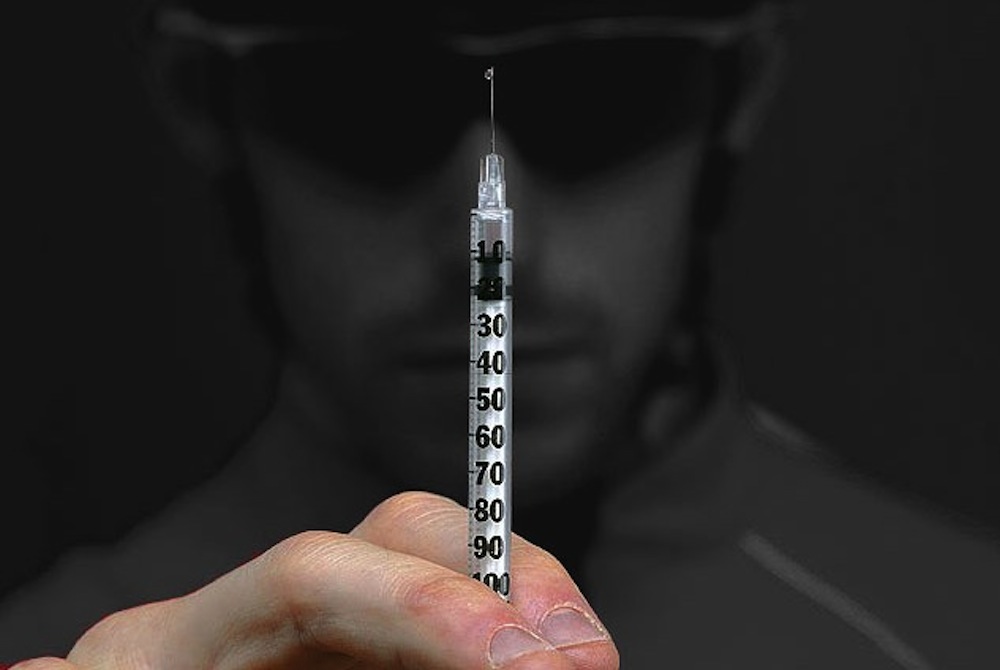Does EPO actually boost cycling performance? New study suggests it might not
New findings cast doubt on the performance enhancement offered by EPO

The latest race content, interviews, features, reviews and expert buying guides, direct to your inbox!
You are now subscribed
Your newsletter sign-up was successful
EPO may not improve cycling performance at all, according to new scientific research. The banned drug increases the number of oxygen-carrying cells in the blood but a new study has raised doubts that it actually helps cyclists.
Forty-eight well-trained amateur Dutch and Belgian riders volunteered to be given EPO or a placebo for the eight week study.
"They were all riders of a good standard and exceeded our specified power/weight threshold," said Adam Cohen, chief executive of the Centre for Human Drug Research (CHDR) in Leiden, the Netherlands, which ran the study in June 2016, but which has only just been published in the Lancet Haematology journal.
"They also had to resign their membership of their national associations so they didn't infringe the sport's anti-doping rules."
>>> Doping survey results: One in 20 amateur racers admit to doping
Half of the cyclists were injected with the drug and half with a placebo. None of them knew what they were receiving and neither did the scientists leading the research.
"It's the protocol used in pharmacology because it is rigorous. We hadn't found any previous research into EPO of such rigour," said Cohen.
The latest race content, interviews, features, reviews and expert buying guides, direct to your inbox!
Every week each rider attended the lab to complete endurance tests, including VO2max, and to give blood samples. These were locked away so nobody could use them to identify who had the EPO in their veins until the whole experiment was over.
Is VO2 max really that important?
In the shorter, high-intensity tests, those who had been given EPO performed better, but there was no difference between then when they carried out a longer 45 minute test indoors.
After eight weeks they went for a 110km ride in June, which ended on the cold and windy summit of Mont Ventoux. The results were shocking, with those who had been given EPO climbing the mountain on average 17 seconds slower than those who had been given the placebo.
"They couldn't feel the effect and we couldn't measure it either," Jules Heuberger, who led the study, told Associated Press.
During the experiment, cyclists were questioned and none ever reported feelings of unusually enhanced power or endurance. So perhaps the effect of EPO is all in the mind?
>>> Can amateur cyclists benefit from blood analysis?
This is the first time such detailed research has been done because it is expensive. "We are a foundation and we have financed it ourselves simply because we want to know. It has cost us about €500,000," said Cohen.
"That's the price of a mass-spectrometer in the anti-doping lab at Rio."
The World Anti-Doping Agency's science director Oliver Rabin said that he doubted the study would change the organisation's approach, but would certainly read it with interest.
"We would need much more than this," Rabin said. "The scientific community will receive this with a lot of scepticism."
This article was originally published on July 15, 2016 after the initial experiment was carried out. It was updated on June 30, 2017 after the study was published.
Max Glaskin is an award-winning freelance journalist who tweets about cycling and science as @CyclingScience1.
He is author of Cycling Science (published by Frances Lincoln UK, Chicago University Press USA, and seven other languages).
Henry Robertshaw began his time at Cycling Weekly working with the tech team, writing reviews, buying guides and appearing in videos advising on how to dress for the seasons. He later moved over to the news team, where his work focused on the professional peloton as well as legislation and provision for cycling. He's since moved his career in a new direction, with a role at the Department for Environment, Food and Rural Affairs.